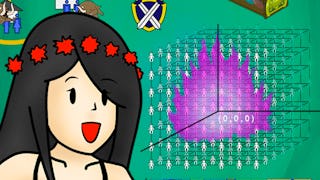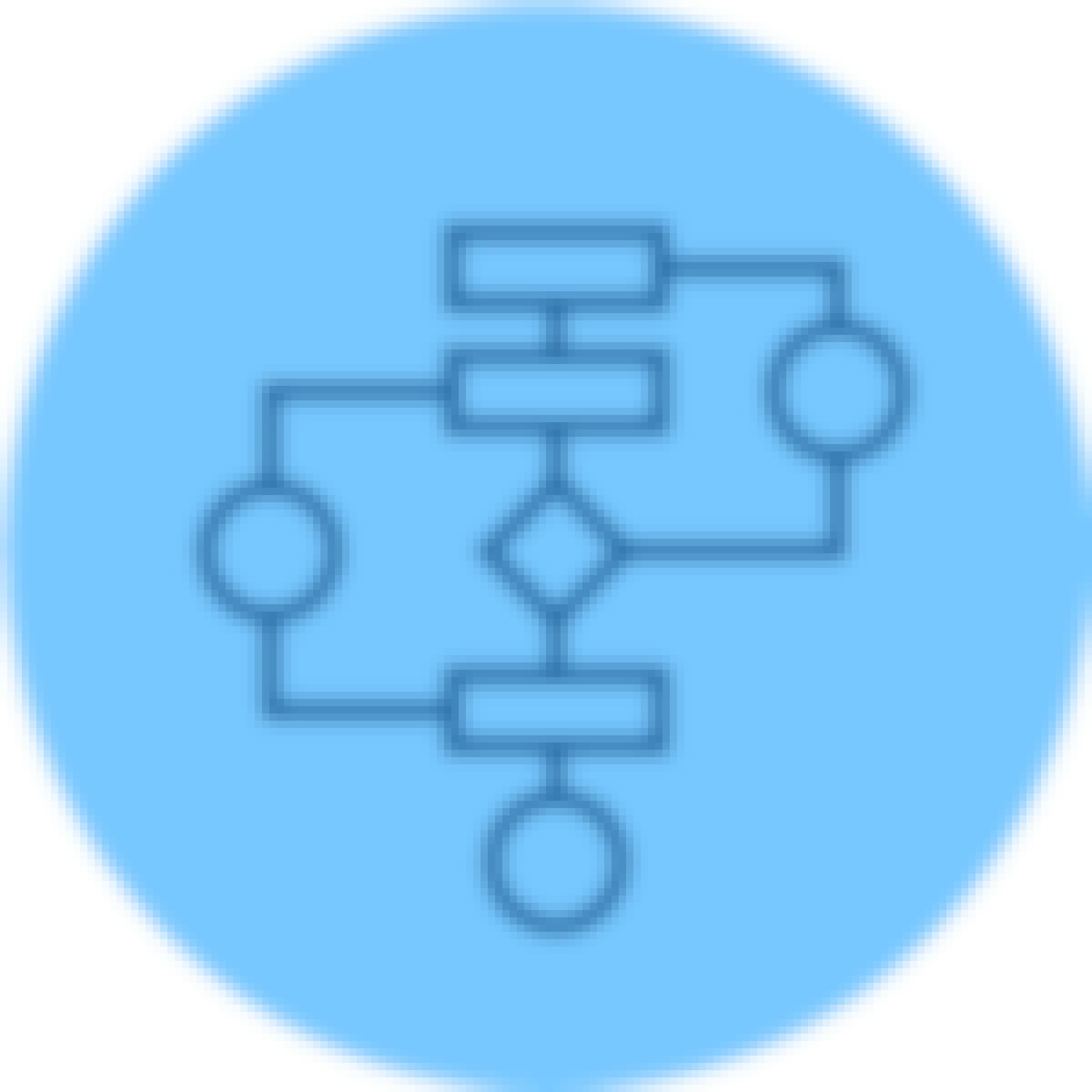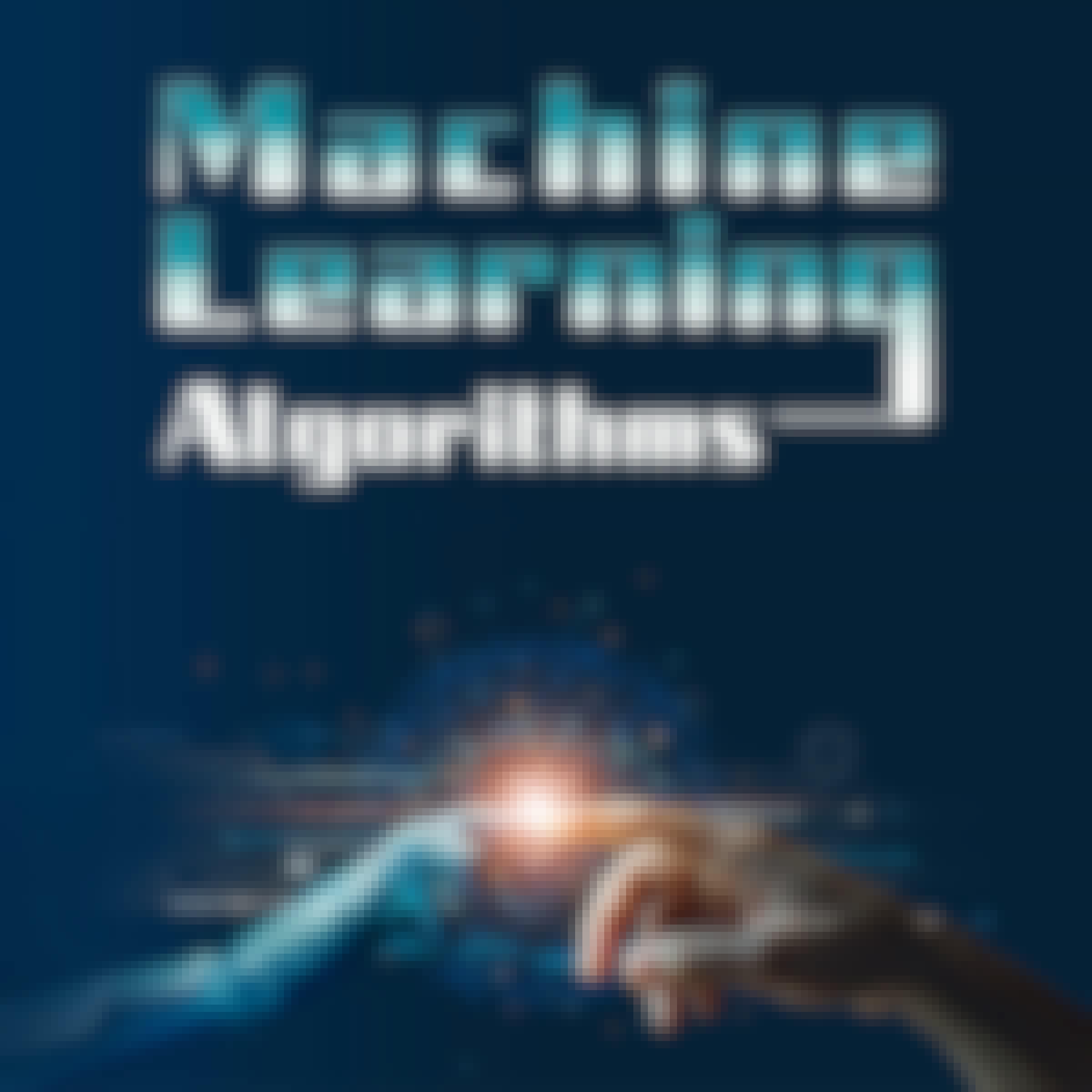Filter by
SubjectRequired
LanguageRequired
The language used throughout the course, in both instruction and assessments.
Learning ProductRequired
LevelRequired
DurationRequired
SkillsRequired
SubtitlesRequired
EducatorRequired
Results for "combinatorial algorithms google"
 Status: Free Trial
Status: Free TrialStanford University
Skills you'll gain: Algorithms, Graph Theory, Theoretical Computer Science, Computational Thinking, Data Structures, Pseudocode, Operations Research
 Status: Free Trial
Status: Free TrialUniversity of Colorado Boulder
Skills you'll gain: Public Key Cryptography Standards (PKCS), Cryptography, Data Structures, Algorithms, Encryption, Theoretical Computer Science, Computer Science, Computational Thinking, Data Storage Technologies, Linear Algebra, Python Programming, Arithmetic
 Status: Preview
Status: PreviewCoursera Instructor Network
Skills you'll gain: Algorithms, Technical Communication, Pseudocode, Computational Thinking, Solution Design, Programming Principles, Software Design, Theoretical Computer Science, Data Structures, Mathematical Modeling, Applied Mathematics, Computer Science
 Status: Preview
Status: PreviewThe Chinese University of Hong Kong
Skills you'll gain: Operations Research, Process Improvement and Optimization, Process Optimization, Algorithms, Complex Problem Solving, Mathematical Modeling, Data Transformation, Computational Logic, Operational Efficiency, Performance Tuning, Business Logic, Programming Principles, Theoretical Computer Science, Linear Algebra
 Status: New
Status: NewSkills you'll gain: Graph Theory, Javascript, Pseudocode, Programming Principles, Computer Science, Performance Tuning
 Status: Free Trial
Status: Free TrialUniversity of Illinois Urbana-Champaign
Skills you'll gain: Data Structures, Data Storage, Algorithms, Data Storage Technologies, Database Systems, Database Theory, Theoretical Computer Science
 Status: Free Trial
Status: Free TrialDuke University
Skills you'll gain: Programming Principles, Algorithms, C (Programming Language), Computer Programming, Problem Solving
 Status: Free Trial
Status: Free TrialSkills you'll gain: Computational Thinking, Algorithms, Graph Theory, Data Structures, Computer Programming, C++ (Programming Language), Object Oriented Programming (OOP)
 Status: Free Trial
Status: Free TrialScrimba
Skills you'll gain: Software Design Patterns, Software Design, Computational Thinking, Algorithms, Program Development, Computer Programming, Software Development, Data Structures, Problem Solving, Computer Science, Machine Learning Methods
 Status: Free Trial
Status: Free TrialSkills you'll gain: Graph Theory, Data Structures, Algorithms, Program Development, Programming Principles, Computational Thinking, Theoretical Computer Science, Computer Science, Python Programming
 Status: Preview
Status: PreviewNortheastern University
Skills you'll gain: Linear Algebra, Statistical Machine Learning, Mathematics and Mathematical Modeling, Statistical Modeling, Probability, Probability & Statistics, Statistical Methods, Bayesian Statistics, Probability Distribution, Mathematical Modeling, General Mathematics, Machine Learning, Applied Mathematics, Statistical Inference, Algebra
 Status: Preview
Status: PreviewSungkyunkwan University
Skills you'll gain: Machine Learning Algorithms, Decision Tree Learning, Classification And Regression Tree (CART), Unsupervised Learning, Machine Learning, Supervised Learning, Python Programming, Algorithms, Linear Algebra, Bayesian Statistics, Probability
In summary, here are 10 of our most popular combinatorial algorithms google courses
- Shortest Paths Revisited, NP-Complete Problems and What To Do About Them: Stanford University
- Advanced Data Structures, RSA and Quantum Algorithms: University of Colorado Boulder
- Algorithmic Solutions: Design, Problem Solving, Reporting: Coursera Instructor Network
- 离散优化算法篇 Solving Algorithms for Discrete Optimization: The Chinese University of Hong Kong
- 70+ JavaScript Challenges - Data Structures and Algorithms: Packt
- Ordered Data Structures: University of Illinois Urbana-Champaign
- Programming Fundamentals: Duke University
- C++: Non-Linear Data Structures: Codio
- The Merge Sort Algorithm: Scrimba
- Foundations of Data Structures and Algorithm Analysis: Packt










